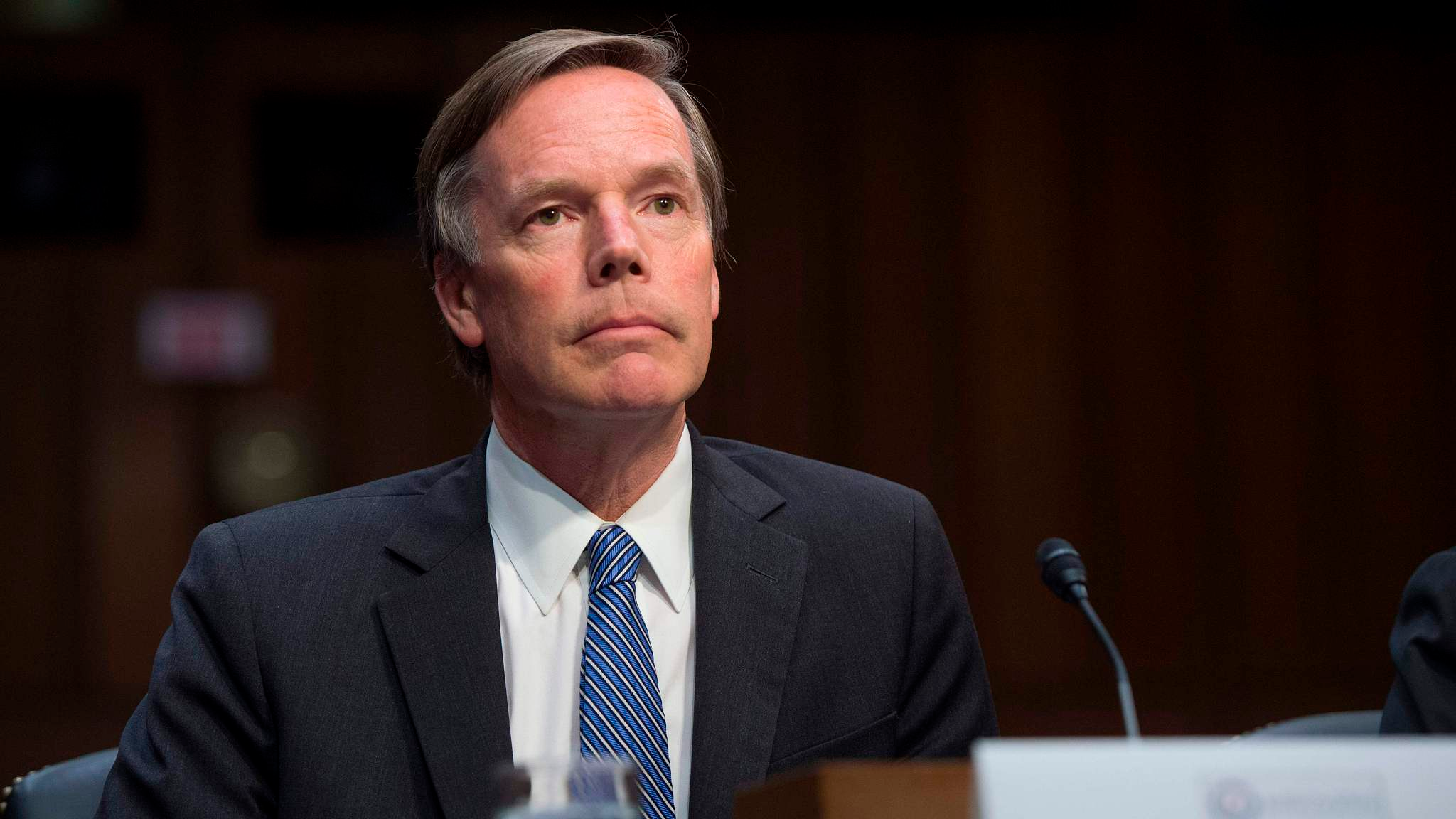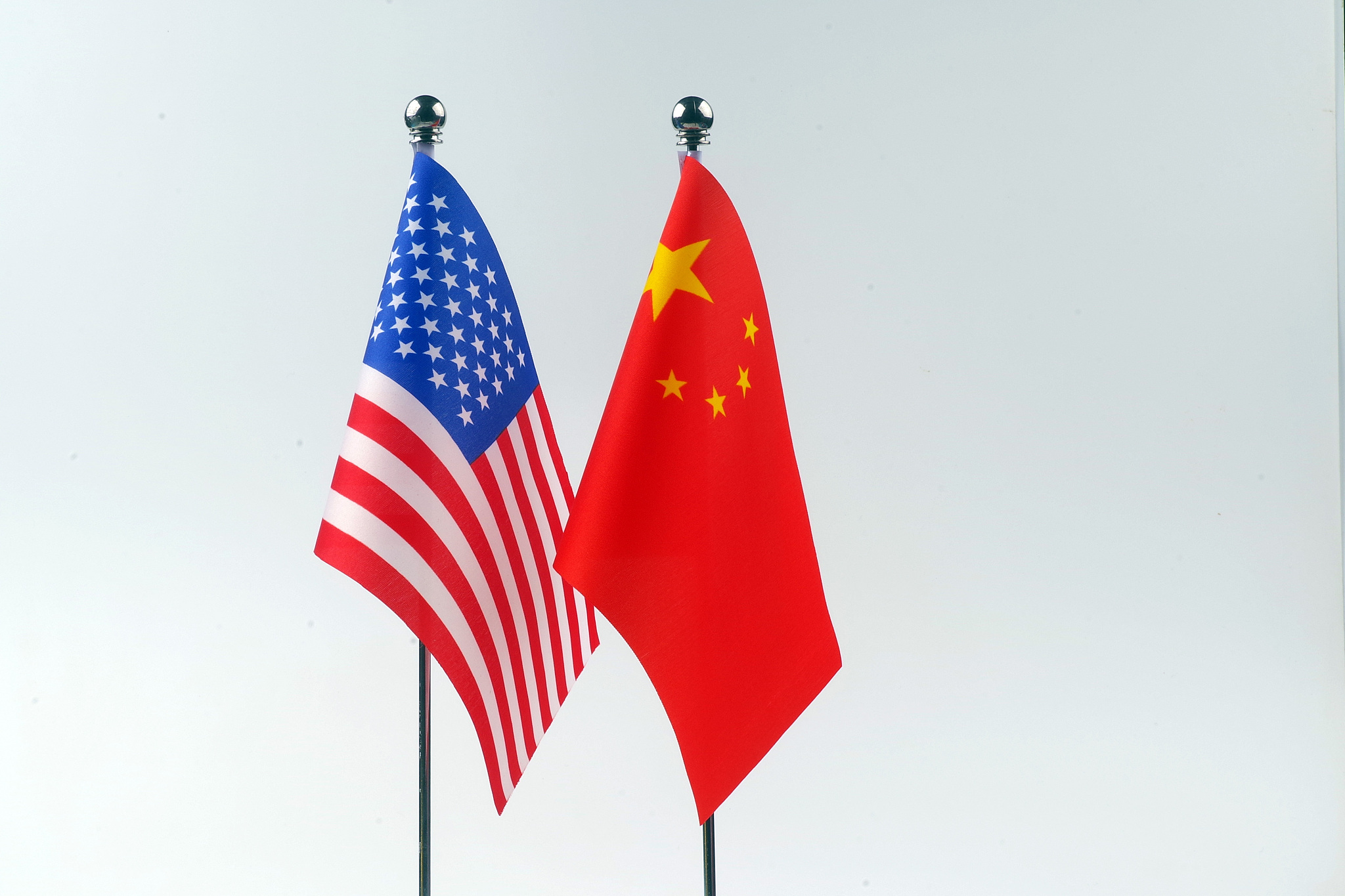
Editor's note: Yuan Sha is an assistant research fellow in the department of American studies at the China Institute of International Studies. A former Fulbright scholar at Columbia University, she has a PhD in International Politics from China Foreign Affairs University. Yuan has published several papers on China-U.S. security relations in Chinese academic journals and is a regular contributor to many Chinese media outlets. The article reflects the author's opinions and not necessarily the views of CGTN.
The U.S. embassy in China is expected to welcome a new boss, as U.S. President Joe Biden on Friday announced his intention to nominate Nicholas Burns as the next ambassador to China. The decision injects a sense of confidence to China-U.S. relations since it fills the vacuum left by the resignation of former Ambassador Terry Branstad over 10 months ago, though it would be too early to predict a turnabout in bilateral relations amid the current tensions.
An ideal pick
Burns is widely seen as the ideal person for the job. He is a veteran in the Foreign Service and has served in important postings under both Democratic and Republican administrations, earning him approval from both parties, which is expected to facilitate his confirmation process in the Senate.
He is also a respected academic. In fact, he is now a professor of Diplomacy and International Relations at the Kennedy School of Government, Harvard University. He is an advocate for diplomacy who likened diplomats to "gardeners" in a recent article commemorating the late U.S. Secretary of State George Schultz in Foreign Affairs magazine. The importance and intricacy of China-U.S. relations needs a figure who is well versed in diplomatic nuances.
Although Burns is not an expert on China, he has rich experience working with the Chinese government "on issues as diverse as Afghanistan, United Nations sanctions against Iran, North Korea, and U.S. policy in the Indo-Pacific," a White House statement said, and at "the Aspen Strategy Group, he organized a policy dialogue with the Chinese government's Central Party School. He has taught, written, and spoken on current U.S.-China relations."
The nomination is widely seen as signifying reciprocity by the U.S. side, as it comes a month after the assignment of the new Chinese ambassador Qin Gang to Washington.
Burns' close relationship with President Biden and Secretary of State Antony Blinken also indicates the importance the administration confers to the U.S. relationship with China. Thus, the new ambassador is expected to act as a bridge between the two countries as diplomatic channels are dwindling due to the dual shock of the COVID-19 pandemic and rising tensions in bilateral relations.

Stay cautious
Given the priority of China in the U.S. national strategy, there are suspicions as to how much latitude a U.S. ambassador would actually have in the China-U.S. relationship after Branstad's experience.
As the Biden administration doubles down on a competitive and even confrontational policy toward China, it would be naive to see the nomination of a new ambassador as an olive branch. In fact, Burns' rich experience and deep connections around the world could give him an edge in helping the Biden administration to rally allies and partners against China.
Notably, Burns agrees with the U.S. policy shift toward strategic competition with China. In his preface to the book "The Struggle for Power: U.S.-China Relations in the 21st Century" published by the Aspen Strategy Group in 2020, he enumerated four principal areas of China-U.S. competition ranging from economic, military, technological and ideological fronts.
But Burns also acknowledges the difficult question of how to best deal with China, and suggested a "hybrid approach: compete with China where we must; cooperate where we can." He also appealed for the "two tigers (to) unite" during the worst time of the COVID-19 pandemic. This is aligned with the Biden administration's professed "competition, confrontation and cooperation" approach toward China. But this three-pronged policy is now widely seen as lopsided with the "cooperation" facet conspicuously missing. Thus it is much anticipated to see how a new ambassador will promote cooperation and rebuild trust between the two countries.
(If you want to contribute and have specific expertise, please contact us at opinions@cgtn.com.)

